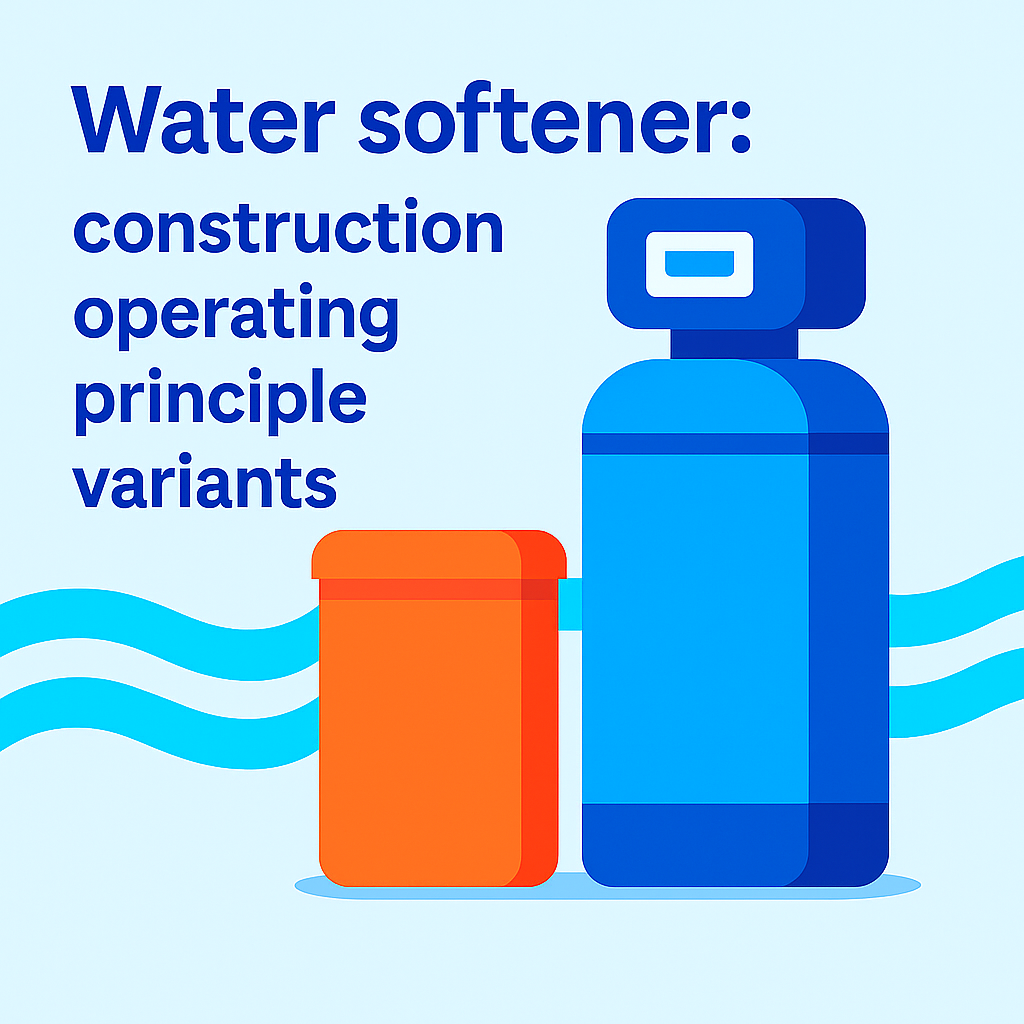What Is a Water Softener Filter for Removing Hardness Salts?
How to remove limescale from well water? What kind of water filters should you use?
In this article, we discuss water softeners — one of the key elements of water treatment in single-family homes.
Mains Water vs. Well Water
If you live in the countryside or outside a city, you usually have two water sources: mains water or a private well. Mains water tends to be softer and contains less iron — it’s generally suitable for household use. However, mains supply doesn’t reach every location, especially in rural areas. In such cases, a well or borehole becomes the main water source.
Well Water – Pros and Cons
Well water offers convenience — you can do laundry daily, water the garden, wash the car, and not worry about water bills. But it often contains iron, manganese, hardness salts, nitrates, and may have an odd smell or taste.
From experience, water analysis rarely shows perfect results — there are almost always some exceedances. That’s why water filters are essential.
Water Softener – A Solution for Hard Water
How do you know if you need a water softener?
Typical signs of hard water include:
-
Increased use of cleaning products
-
White limescale in kettles, on heating elements in washing machines, boilers, or water heaters
-
Shorter lifespan of appliances and higher electricity bills
-
Potential health effects – salt buildup in the body
-
Unpleasant taste in tea or coffee and residue in cups
To ensure proper functioning of drinking (RO) filters, pre-filtration is required — well water is too “heavy” and can destroy the membrane within weeks. That’s why a softener is installed first to treat utility water. Only then is a drinking water filter added.
Water Softener – How It Works and What It’s Made Of
A softener is a plastic tank filled with ion exchange resin. On top is a control valve that automatically manages operation. The system also includes a brine tank.
Water flows through the “IN” valve, distributes evenly through the resin bed, and the softened water exits through a central tube to your home’s plumbing.
Ion Exchange Resin – How It Works
These are tiny beads that exchange calcium and magnesium ions (which cause hardness) for sodium ions. Sodium does not form scale — it’s safe for appliances and doesn’t affect taste.
The resin needs periodic regeneration. Once the filter processes approx. 5 m³ of water, it automatically starts a regeneration cycle using a salt solution. This usually takes place at night and consists of several steps: pre-rinse, brine preparation, suction, final rinse, and resin settling.
Water Softener Options – Comfort and Economy
The size depends on your water analysis and consumption. We offer two variants:
-
Comfort – more resin, less frequent regenerations, longer lifespan
-
Economy – lower initial cost, but more frequent regenerations and faster media wear
Intelligent Water Softener – iBregus
Modern iBregus systems connect to the manufacturer’s server. They can be remotely configured, allow water usage monitoring, and even send reminders to refill salt. Everything is accessible via the user panel.
Summary
Now you know what a water softener is, how it works, and why it’s worth having a filter to remove hardness salts. It’s an effective, durable, and cost-efficient solution — especially if you use well water.
If you have questions — feel free to contact us, we’ll be happy to help!

No responses yet